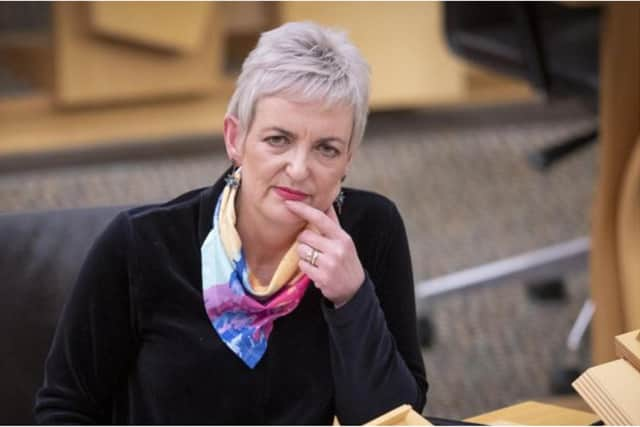Scotland’s drugs deaths: Warnings for Class A drug possession is ‘smart use of law’, says Angela Constance
Angela Constance hit back after the Conservatives claimed the new approach – announced by Lord Advocate Dorothy Bain QC – amounts to “defacto decriminalisation”.
Police officers can already use their discretion to issue warnings to those caught with Class B and C drugs – such as barbiturates and cannabis.
Advertisement
Hide AdAdvertisement
Hide AdMs Bain announced on Wednesday that that power is now being extended to Class A substances, which also include ecstasy, crack cocaine and magic mushrooms.


Describing the change as a “smart use of the law”, Ms Constance said it will be at the discretion of police whether a warning is issued, and she stressed this will only be an option in cases of possession for individual use, not where someone is suspected of being involved in supplying drugs to others.
She hailed the move as “very significant” as Scotland aims to reduce drugs deaths – which reached a record 1,339 in 2020.
She told BBC Radio Scotland the change had been welcomed by all parties at Holyrood “with the exception of the Conservatives”.
Speaking on the Good Morning Scotland programme, Ms Constance added: “There is a recognition that as we embark on our national mission to reduce drug related deaths in Scotland, we need as much as we can within our powers towards a public health response.
“I think the Lord Advocate’s statement was very significant.
“The Lord Advocate was speaking about possession only. I would of course as the drugs minister argue that people caught in possession of heroin should be supported into treatment because we can’t arrest our way out of a drugs death crisis, and we need to be reducing demand for drugs as well as supply.
“This is of course a discretionary power by the police.
“But it is an example of how we can tailor our criminal justice system to be more proportionate and be more timely and a more smart use of the law.”
A message from the Editor:
Thank you for reading this article. We're more reliant on your support than ever as the shift in consumer habits brought about by coronavirus impacts our advertisers.
If you haven't already, please consider supporting our trusted, fact-checked journalism by taking out a digital subscription.
Comments
Want to join the conversation? Please or to comment on this article.
